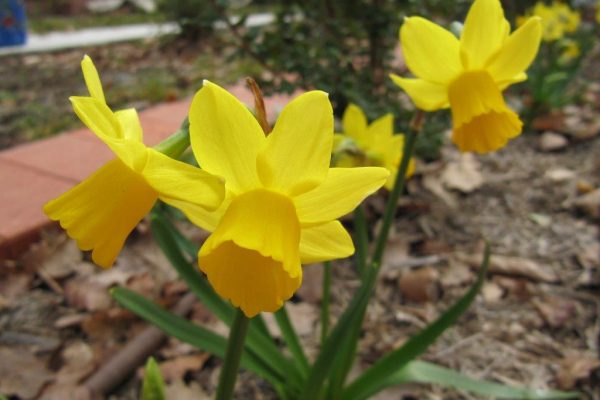
“Following the bulb riot of colour, blossom trees will brighten our streets,” says gardening columnist CEDRIC BRYANT.
SPRING is just around the corner and we’re all looking forward to the splash of colour from all the bulbs.

The leaves of daffodils, Dutch iris and other bulbs are already more than 30cm out of the ground. It is a good idea to give them a feed at this time for a final boost before bursting into flower. I still recommend liquid seaweed, as with the ground beautifully moist, this will soak right down to the bulb itself.
It has been a miserable winter with constant cold winds and rain. Following the bulb riot of colour, blossom trees will brighten our streets.
I will keep pushing our local, dull government for more blossom trees. Walk along any street or through our green spaces to see the lack of colour. The range of flower colours through all the seasons is endless, plus we have a huge range of autumn leaf colour. Some may think that leaf colours are boring and yet views from the top of Mt Ainslie, Black Mountain or the Arboretum show this couldn’t be further from the truth.
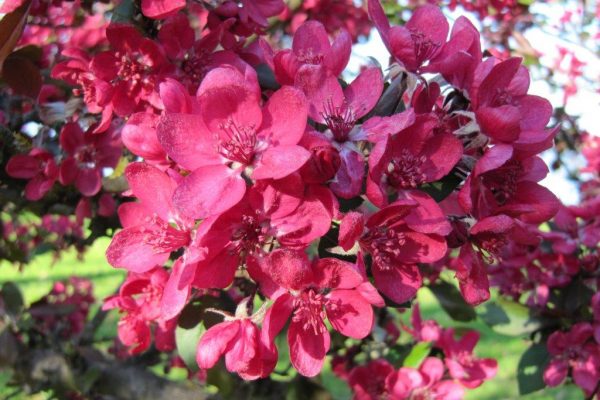
ONE of the largest growers of advanced trees, if not the largest, is Fleming’s Nurseries in Victoria. These grow in the magnificent rich, volcanic soils of the Dandenong Ranges, where incidentally, the Dutch grow most of their bulbs. I recommend any of the following if you have a reasonable-sized garden.
- Cercis chinensis “Avondale” with apple-green leaves and deep-pink flowers in spring. A medium-size tree at 3m x 2m.
- Cornus “Indian Summer”, a variety of dogwood with a spectacular display of reddish-magenta flowers in late summer, which can last up to 100 days. There are a number of cultivars and the flower colours can vary. 4m x 4m.
- Malus ioensis “Plena”, personally my favourite crabapple. Often referred to as the “grandma” of crabapples with masses of pink-tinged white flowers. A slightly larger one at 6m x 6m.
- Malus “Tom Matthews”, suitable for the smaller garden, grows to 3m x 3m with vivid, scarlet-red flowers and bronze-red leaves in spring.
- Malus “Kojo-no-mai” has a pride of place at our house in a large, terracotta pot that we treat as a bonsai. It is the first plant we see when we open the bedroom curtains in the morning, with a variety of pale-pink cherry borders on white flowers. This grows to just 1.5 x 1.5m and makes a perfect pot specimen on a balcony.
- Prunus “Snow Fountain” presents a simply sensational weeping display of single white flowers that literally cover the tree. Fleming’s terms this a knockout from the day it’s planted. It’s grown as a standard with the main trunk a short 1.2m, suitable for a large pot, to a taller stem of 1.8m of which you’d need a considerably larger container and displayed in a position where it’s not subject to too much wind.
- If you want a real show-stopper – and for this you will need the space – plant Pyrus calleryana “Chanticleer” as it will grow 11m high x 6m with clusters of white flowers. During summer it has white, shiny leaves followed by the equally show-stopping, brilliant gold-red autumn leaves that make it the most popular ornamental pear worldwide.
All the trees listed above are available at most garden outlets in Canberra. A reminder: the Bunnings garden outlet is fully operational at Majura Park at the airport.
AND, an important note from Fleming’s Nurseries: always read the label to ensure you plant your tree in the ideal location. For example, a flowering tree may require full sun and won’t achieve its best results if overshadowed by other trees or buildings. Now is still the ideal time for tree planting, until the end of September.
Who can be trusted?
In a world of spin and confusion, there’s never been a more important time to support independent journalism in Canberra.
If you trust our work online and want to enforce the power of independent voices, I invite you to make a small contribution.
Every dollar of support is invested back into our journalism to help keep citynews.com.au strong and free.
Thank you,
Ian Meikle, editor
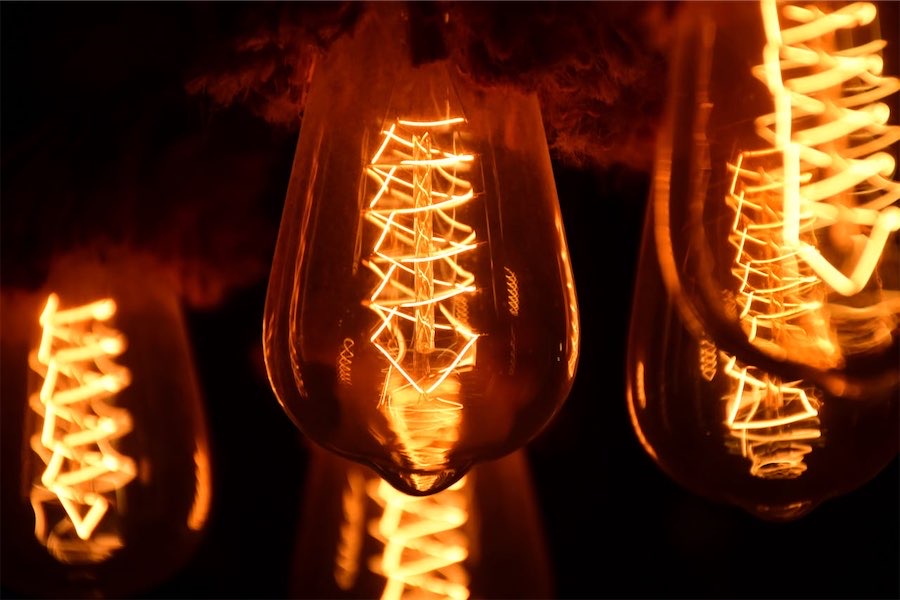
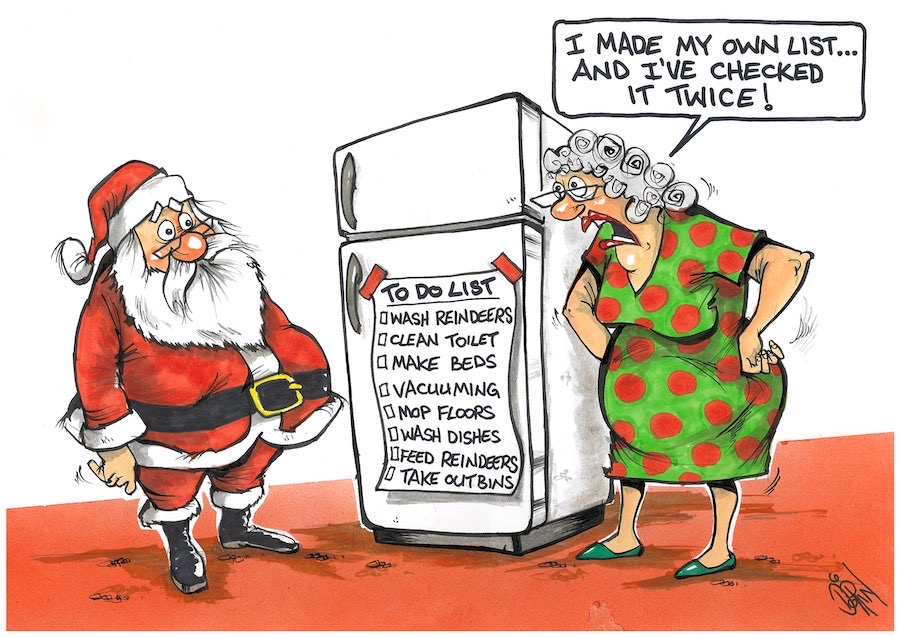
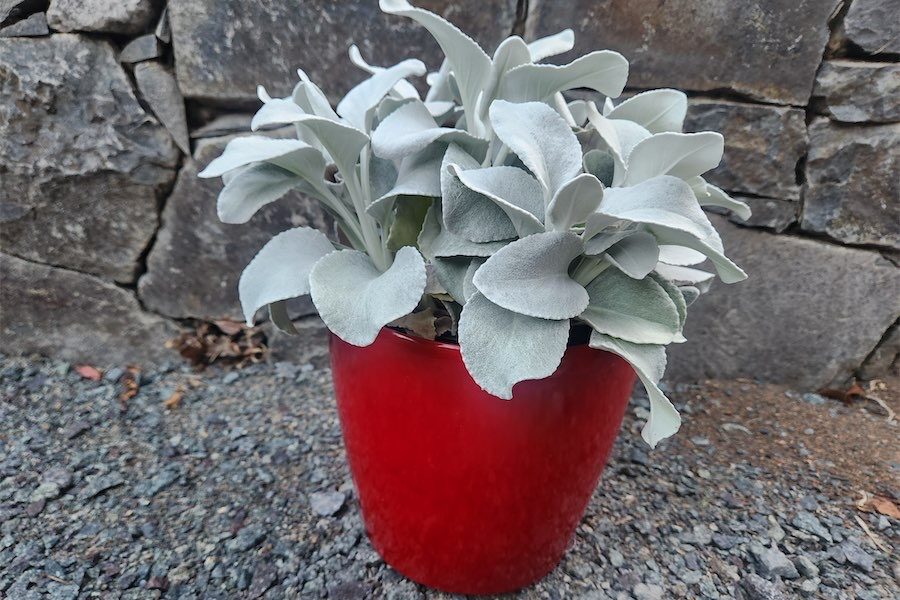

Leave a Reply